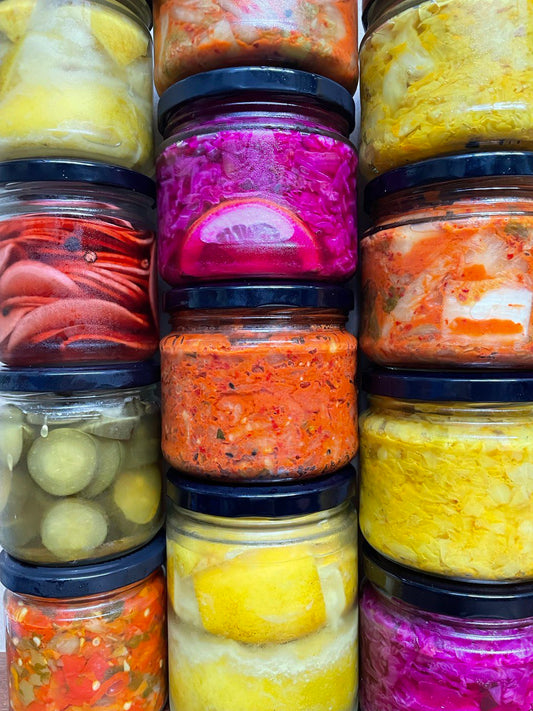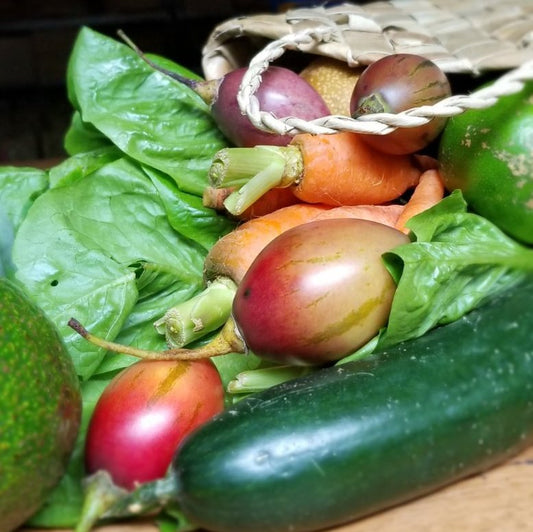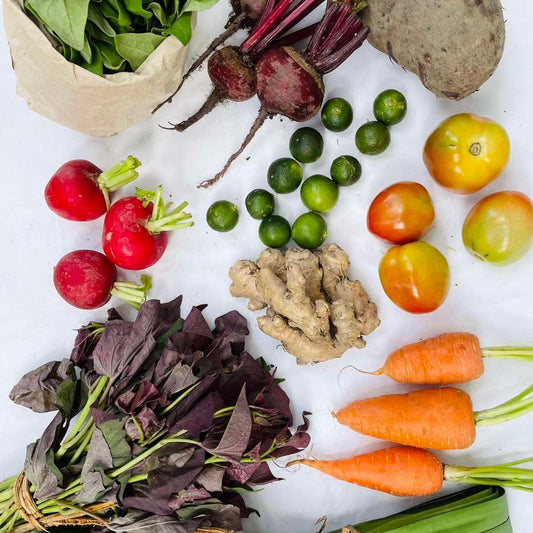What is fermentation?
Fermentation is one of the oldest and safest ways to preserve food. And in the process of preservation, live microorganisms such as bacteria and yeast transform not only its flavor and texture, but also its nutritional value and ability to be absorbed by our bodies. Fermented foods are health-promoting foods because they support the health of our microbiome.
What is the microbiome?
Think of our microbiome as a garden! It consists of communities of different microorganisms in and on our bodies. Majority of them are in our gut, where they work to support our immune system, break down sugars for energy, affect our emotions, provide our cells with nutrients, and fight pathogens from taking over.
How do we care for our microbiome?
Well, what makes a garden beautiful? Diversity!
While no two microbiomes are the same, generally, diversity makes them thrive. Different fruits and vegetables and the frequent intake of fermented foods feed our bodies’ happy helpers so they can support our health goals.
Choose organic produce because pesticides and chemicals can kill the beneficial microbes in them, which we need for fermentation.
And remember, moderation is key! If you are new to fermented food, take a gradual but consistent approach. Try different ferments and share with your friends! Hang out and relax outdoors.
We must protect diversity.
The siege on the world’s biodiversity is reflected in our bodies as well.
We have lost an estimated 25% of diversity in our gut microflora due to standard diets heavy on animal protein and processed, convenience foods. Compare this with traditional peoples’ microbiomes, and it speaks largely to the difference in diet and the quality of food we are choosing to put in our bodies.
We’re seeing how the health burdens in modern societies have shifted from infectious to inflammatory diseases, which studies are linking to poor gut health and a lack of diversity and fresh foods in the modern diet.
Safeguarding the rights of societies to grow biodiverse food organically now means our right to a healthy life and safe and secure sources of affordable food. This also means that if we want this diversity to heal our bodies and our planet, we must resist the pressures to erode it such as the rampant use of pesticides and the push for genetically modified organisms.
How to eat for all of us?
There are many accessible ways of adding ferments to your diet!
Kimchi is a common one and easily accessible. Kombucha is a low-barrier first foray into exploring this community of cultured foods. Preserved lemons make a great addition to beans; sauerkraut and other lacto-fermented veg can also be added to meals as probiotic atchara. Miso everything. And while cooking will kill a lot of the live bacteria (including beneficial ones) but improved nutrient availability is still there.
We highly recommend the practice itself of fermentation, as a way to pay attention and grow your intuition, skills, and creativity around food. Where there is diversity, we are rich with possibilities.



